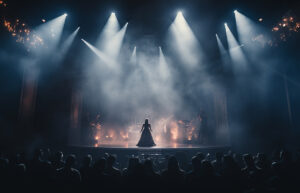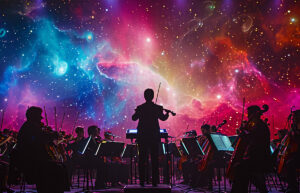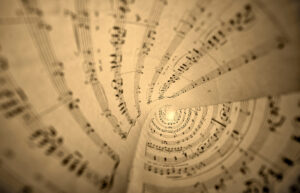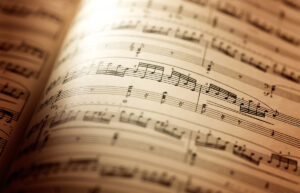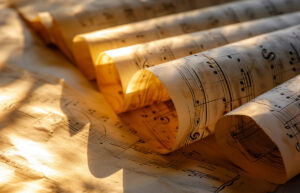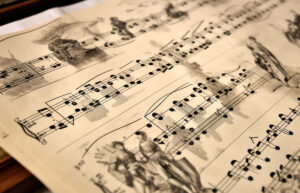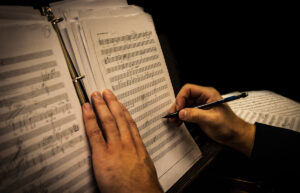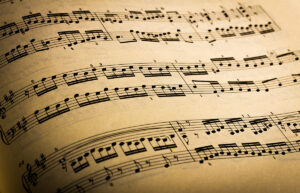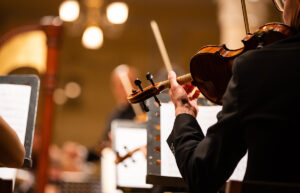The Complete Guide to What Is Classical Music
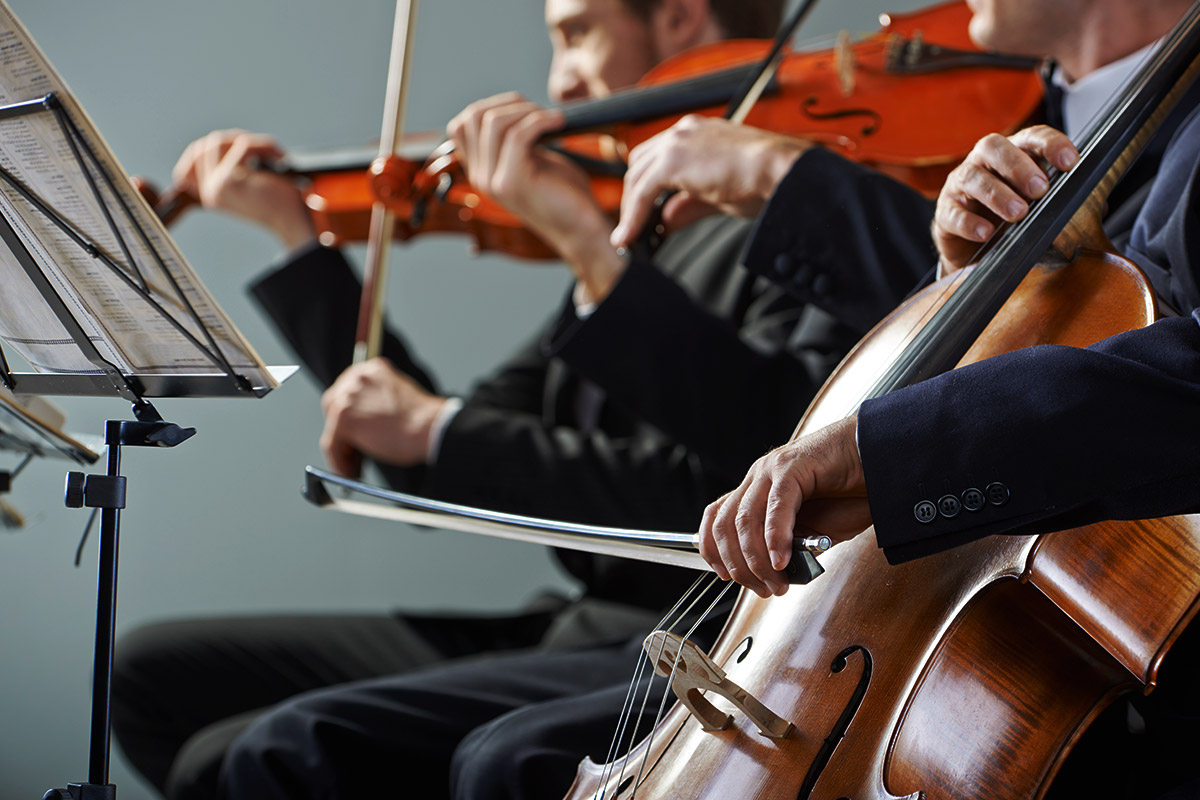
This comprehensive guide provides insights into the origins, significance, key eras, distinctive features, and the instruments that breathe life into classical music. Delve into the iconic compositions and legendary composers that have shaped this timeless musical heritage. Whether you’re a seasoned connoisseur or a curious newcomer, this guide ensures an enthralling journey through the universe of classical music.
Welcome to TheDemoStop, now join the community!
Connect with artists, fans and producers around the world.
What is classical music?
Classical music, a celebrated genre distinguished by its rich history, intricate compositions, and enduring appeal, spans various instruments and distinct periods, including the Baroque, Classical, Romantic, and Contemporary eras. Key characteristics of classical music include intricate melodies, harmonies, and structured forms brought to life by revered composers like Bach, Mozart, and Beethoven.
Known for its complexity and emotional depth, classical music continues to captivate audiences with its timeless beauty and profound emotional expression, presenting a diverse array of compositions ranging from symphonies and concertos to chamber music and operas. Its profound influence on the world of music and culture persists.
Origin of Classical Music
The roots of classical music can be traced across various historical periods and regions, including Europe, Asia, and Africa, where intricate compositions and structured forms began to emerge. Primarily, classical music found its foundation in the Western musical tradition, with influences from ancient Greek and Roman cultures and the medieval and Renaissance periods.
Key periods like the Baroque, Classical, Romantic, and Contemporary eras, led by celebrated composers like Bach, Mozart, and Beethoven, have significantly shaped classical music.
Simultaneously, Asian Classical music, such as Indian and Chinese music, has deep historical significance and continues to influence the global classical music landscape.
The present-day form of classical music largely took shape during the 17th-century Baroque era and the subsequent Classical period, extending from the mid-18th to the early 19th century, introduced renowned figures like Mozart, Haydn, and Beethoven, paving the way for structured compositions such as symphonies and sonatas.
The 19th-century Romantic era, with composers like Brahms, Tchaikovsky, and Wagner, emphasized artistic freedom and emotional expression, resulting in more intricate and diverse musical works. Despite its European origin, classical music has made a worldwide impact, encompassing diverse styles and continually evolving. It remains a profound, enduring, and diverse musical tradition, leaving an indelible mark on the global music heritage.
Importance of classical music
The significance of classical music remains profound and deeply intertwined with its ability to evoke powerful emotions, spark creativity, and inspire individuals across generations. Its enduring legacy stretches beyond the realm of music, leaving a lasting impact on culture, education, and personal well-being.
Inspire and influence people
Classical music possesses a transformative power, kindling the human imagination, influencing musicians and people from all walks of life, and nurturing creativity.
Cultural significance
Classical music holds immense cultural importance, reflecting diverse societies’ history, values, and creativity, acting as a mirror of our cultural identity.
Educational benefits
This genre enhances cognitive skills such as memory, problem-solving, and spatial intelligence, offering a structured and intellectual approach that enriches overall education.
Therapeutic effects
Classical music’s therapeutic effects are well-documented, soothing the human psyche, reducing stress and anxiety, and improving mental well-being, making it a valuable therapy for many.
Types of classical music
Classical music encompasses diverse forms, each possessing its distinct attributes. Here are five classical music genres:
Opera
Opera is a grand and theatrical style of classical music that combines music, singing, and storytelling, featuring solo arias, ensemble pieces, and orchestral accompaniments, allowing for a rich exploration of emotions and narratives.
Symphony
Symphonies are instrumental compositions for orchestras, typically consisting of multiple movements with specific tempos and moods, known for their structured and symmetrical nature.
Chamber music
Chamber music is an intimate form designed for smaller groups like string quarters or trios, encouraging intricate interplay between instruments and musicians, resulting in delicate and nuanced compositions.
Concerto
A concerto highlights a solo instrument accompanied by an orchestra, creating a dynamic dialogue between the soloist and the orchestra, striking a balance between technical prowess and emotional depth.
Sonata
Sonatas are solo compositions, usually for piano or other solo instruments, available in various forms, such as the classical sonata-allegro structure. Sonatas showcase the capabilities of a single instrument and often feature multiple movements, each with a distinct theme and tempo.
Welcome to TheDemoStop, now join the community!
Connect with artists, fans and producers around the world.
Characteristics of classical music
Classical music boasts distinctive features that distinguish it from other genres. These elements collectively contribute to its enduring allure:
Simplicity
Classical compositions are renowned for their clarity and simplicity, emphasizing well-structured melodies and harmonies that please the ear.
Accessibility
Classical music’s timeless quality transcends cultural boundaries, making it enjoyable for people of diverse backgrounds and ages.
Contrasting moods
This genre effortlessly transitions through a spectrum of emotions, ranging from exuberant and joyful to solemn and reflective, lending depth to its compositions.
Texture
Classical music is characterized by intricate layering of instruments and voices, crafting a rich and complex musical texture.
Themes and melody
Memorable themes and melodies define classical music, often undergoing variations and transformations within a composition, showcasing the composer’s creativity.
What are the different periods of classical music?
| Period | Years | Composers | Composition |
| Early and Medieval | 500 – 1400 | Hildegard of Bingen | Ordo Virtutum |
| Renaissance | 1400 – 1600 | Josquin des Prez | Ave Maria |
| Baroque | 1600 – 1750 | Johann Sebastian Bach | Mass in B Minor |
| Classical | 1750 – 1820 | Wolfgang Amadeus Mozart | Symphony No. 40 in G Minor |
| Romantic | 1810 – 1910 | Ludwig van Beethoven | Moonlight Sonata |
| Modern | 1890 – 1975 | Igor Stravinsky | The Firebird |
| Contemporary and Post- Modern | 1950 – Present | Philip Glass | Einstein on the Beach |
Instruments used in classical music
Classical music employs diverse instruments, each with its unique role in crafting the genre’s captivating compositions. There are several primary instrument categories within classical music:
Strings
This category includes instruments like the violin, cello, and double bass, which provide both melodic and harmonic elements, forming the foundation of classical compositions.
Woodwind
Instruments like the flute, clarinet, and oboe bring depth and versatility to classical music, producing distinct tones that help convey various moods in compositions.
Brass l
Trumpet, trombone, and French horn are examples of brass instruments, renowned for their powerful and resonant sounds, often employed for majestic and bold musical passages.
Percussion
The percussion section features instruments such as the timpani, snare drum, and cymbals, contributing rhythmic elements and dynamic accents to classical pieces.
Trumpet
A specific type of brass instrument, the trumpet, is known for its brilliance and soaring melodies, holding a prominent role in classical orchestras, especially in fanfare and concertos.
Most famous tunes in classical music
Explore the world of classical music through renowned composers and their iconic compositions that have left an everlasting impact:
Mozart
Wolfgang Amadeus Mozart, an iconic composer, has graced the world with timeless classics such as “Eine kleine Nachtmusik” and “The Marriage of Figaro,” renowned for their grace and beauty.
Beethoven
Ludwig van Beethoven’s works include the grand “Symphony No. 9” and the emotionally evocative “Moonlight Sonate,” showcasing his profound influence on classical music.
Puccini
Giacomo Puccini’s arias, “Nessun Dorma” from “Turnadot” and “O Mio Babbino Caro” from “Gianni Schicchi” are beloved by opera enthusiasts worldwide.
Vivaldi
Antonio Vivaldi’s “The Four Seasons” remains an enduring masterpiece, vividly portraying each season through exquisite violin concertos.
Bizet
Georges Bizet’s “Carmen” features unforgettable arias like the passionate “Habaners” and the captivating “Seaguidilla,” encapsulating the essence of dramatic storytelling in classical music.
Welcome to TheDemoStop, now join the community!
Connect with artists, fans and producers around the world.
Famous composers of classical music
Distinguished composers of classical music, these individuals have made an enduring impact, leaving behind compositions that continue to captivate and inspire generations of music enthusiasts:
Wolfgang Amadeus Mozart
Famed for his remarkable talent, Mozart is renowned for crafting timeless works like “Eine kleine Nachtmusik” and “The Magic Flute”, securing his place among the greatest classical composers in history.
Ludwig van Beethoven
Celebrated for his symphonies, including the iconic “Symphony No. 9”, and piano sonatas like the “Moonlight Sonata,” Beethoven is revered for the emotional depth and innovation within his competition, firmly establishing him as a musical genius.
Johann Sebastian Bach
Noted for his intricate fugues, cantatas, and masterpieces like the “Brandenburg Concertos” and “Mass in B Minor,” Bach’s meticulous artistry served as the cornerstone of Baroque music.
Franz Schubert
Schubert’s romantic compositions, such as “Ave Maria” and “Symphony No. 8″(Unfinished Symphony), are cherished for their lyrical beauty and emotional resonance.
Pyotr Ilyich Tchaikovsky
Tchaikovsky’s ballets, including “Swan Lake” and “The Nutcracker,” along with symphonies like “Symphony No. 5,” are acclaimed for their lush melodies and evocative narratives, firmly establishing him as a beloved figure in the realm of classical music.
Conclusion
In conclusion, this all-encompassing guide to classical music has illuminated various facets of this musical genre, offering these pivotal insights:
- What is classical music? Classical music represents a genre rich in history, renowned composers, and diverse styles. Its structured compositions, intricate melodies, and orchestral arrangements stand out.
- Origin of classical music: The origin of classical music can be traced across Europe, Asia, and Africa. While rooted in the Western musical tradition, it drew inspiration from ancient Greece and Rome, with notable contributions from the medieval and Renaissance periods. Subsequent eras, such as the Baroque, Classical, Romantic, and Contemporary have molded its evolution.
- Importance of classical music: Classical music plays a vital role in inspiring and influencing individuals, reflecting cultural values, offering educational advantages, and delivering therapeutic benefits. Its impact resonates in culture, education, and well-being.
- Types of classical music: This genre encompasses various forms, including opera, symphony, chamber music, concerto, and sonata, each possessing unique attributes that enrich the classical music landscape.
- Characteristics of classical music: Characterized by simplicity, accessibility, contrasting moods, intricate texture, and memorable themes, classical music maintains its enduring charm through these defining elements.
- What is the main classical music period? Classical music has journeyed through distinct periods, such as Early and Medieval, Renaissance, Baroque, Classical, Romantic, Modern, Contemporary and Post-Modern, each marked by unique traits and notable composers.
- Instruments used in classical music: The classical music repertoire comprises a wide array of instruments, including strings (violin, cello), woodwinds (flute, clarinet), brass (trumpet, trombone), and percussion (timpani, snare drum).
- Most famous tunes in classical music: Celebrated composers have crafted timeless tunes, with notable examples such as Mozart’s “Eine Kleine Nachtmusik,” Beethoven’s “Symphony No. 9,” Puccini’s “Nessun Dorma,” Vivaldi’s “The Four Seasons,” and Bizet’s “Carmen”.
- Famous Composers of Classical Music: The legacy of classical music owes much to legendary composers such as c Wolfgang Amadeus Mozart, Ludwig van Beethoven, Johann Sebastian Bach, Franz Schubert, and Pyotr Ilyich Tchaikovsky.
FAQs
What defines classical music?
Classical music is defined by its commitment to precise rules of composition, structure, and instrument utilization. It is recognized for intricate harmonies, sophisticated tunes, and structured formats. In contrast to popular music, classical pieces frequently emphasize instrumental orchestration, symphonies, and orchestral creations, delivering a profound and enduring musical journey.
What is classical music called now?
Classical music is still commonly referred to as “Western art music” or “art music.” Despite developing various musical genres inspired by classical music, “classical music” is a widely acknowledged term that signifies a genre distinguished by intricate compositions and structured forms.
What makes classical music unique?
The distinctiveness of classical music is rooted in its rich history, intricate compositions, and enduring charm. Its focus on formal structures, complex harmonies, and orchestral arrangements sets it apart. Classical pieces frequently tell stories and evoke profound emotions, making them timeless and universally appreciated.
Why do people love classical music?
Various factors contribute to the widespread appeal of classical music. The genre’s intricate compositions, emotional depth, and timeless melodies resonate with audiences, evoking a range of emotions. The rich history of classical music, combined with the virtuosity of celebrated composers and performers, adds an additional layer of allure to the genre.
Who are some famous classical composers?
Famous classical composers include Wolfgang Amadeus Mozart, Ludwig van Beethoven, Johann Sebastian Bach, Franz Schubert, and Pyotr Ilyich Tchaikovsky.
What is the role of classical music in society today?
Classical music is vital in today’s society, providing an enduring link to human emotions and culture. Its calming and uplifting tunes offer solace from our fast-paced lives, supporting relaxation and mental wellness. Furthermore, classical music contributes to society by enhancing education and preserving culture.
Can people of all ages and backgrounds enjoy classical music?
Absolutely, classical music transcends age and background. Its timeless compositions evoke many emotions and deeply resonate with the human experience. Regardless of age or cultural background, classical music offers a diverse repertoire that has the power to captivate and connect with individuals, establishing itself as an inclusive art form without limitations.
How has classical music influenced other music genres?
Across history, classical music has profoundly influenced a range of music genres. Its intricate compositions, melodic structures, and harmonic principles have served as the foundation for numerous musical styles. Classical techniques permeate jazz and rock, orchestral components are prevalent in film scores, and occasional classical-inspired elements can even be found in contemporary pop and electronic genres.















